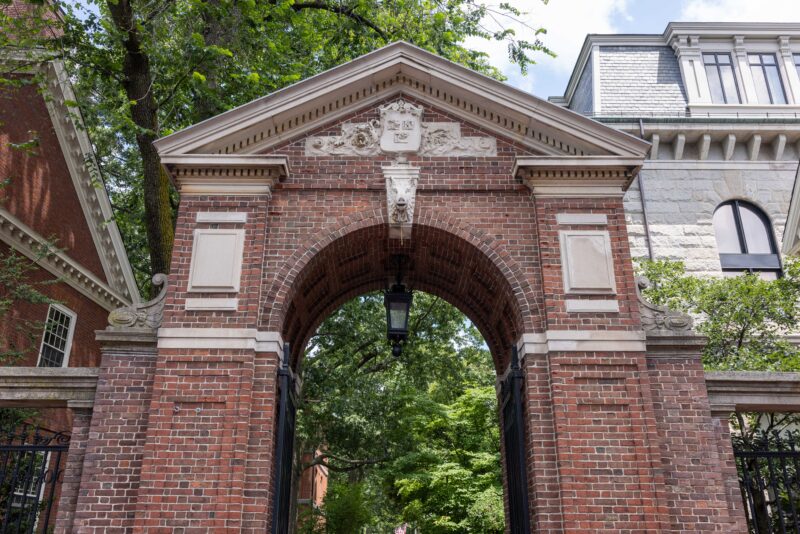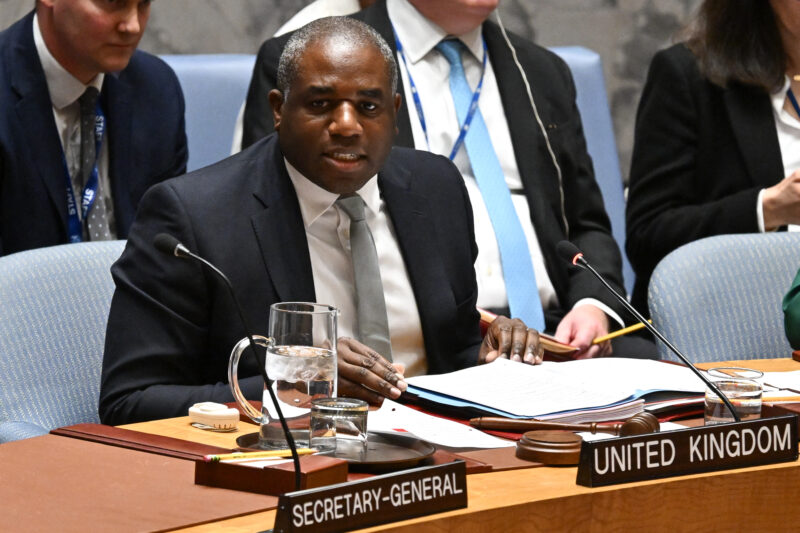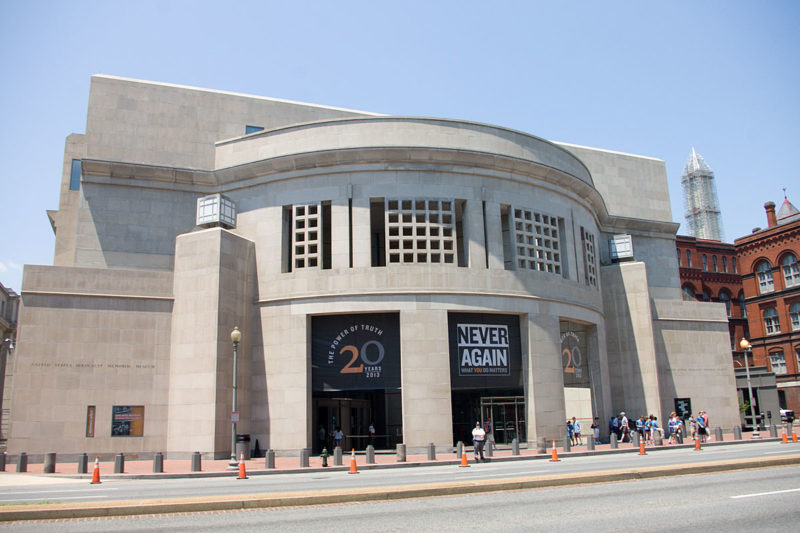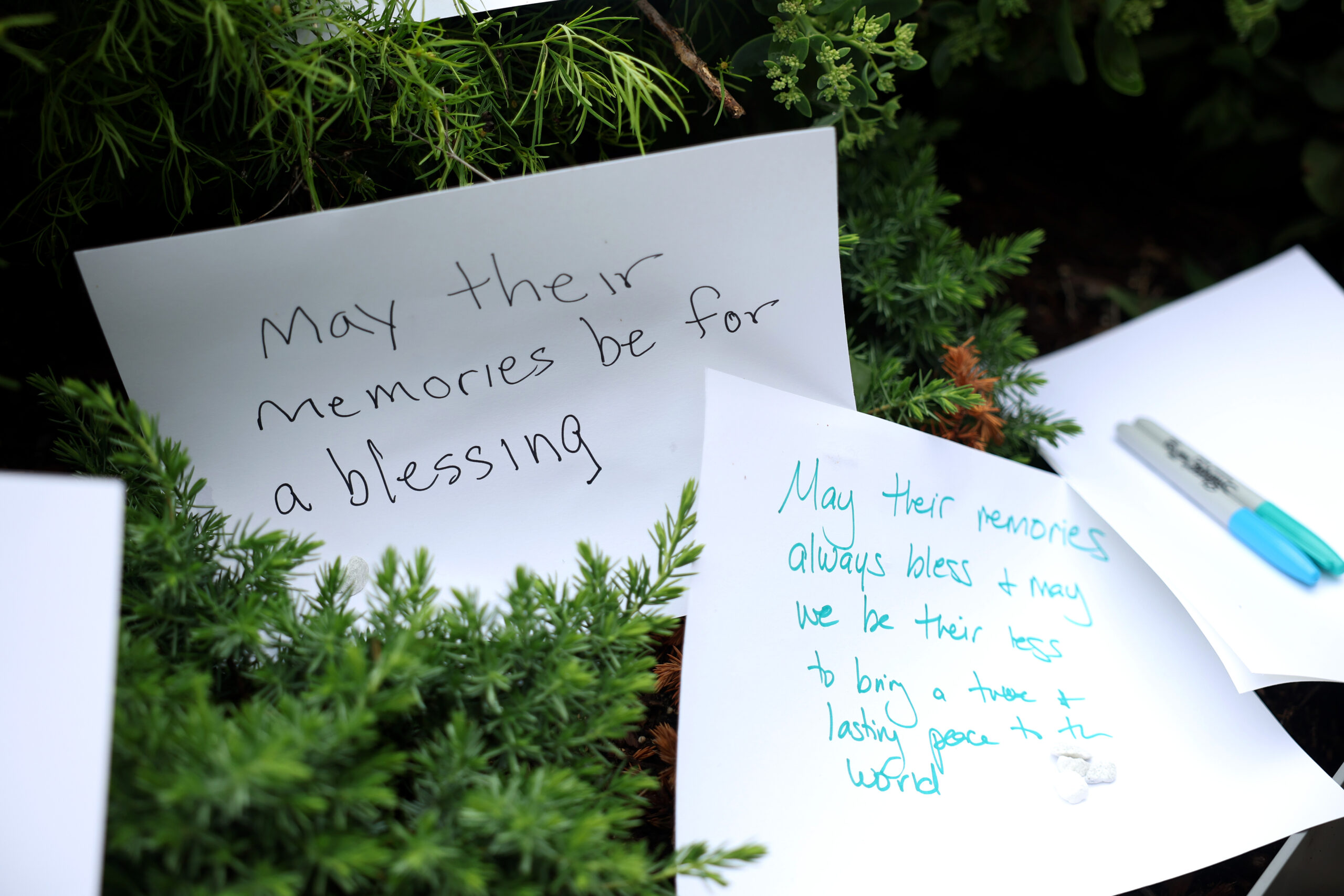Plus, the NYC candidate who won't say 'Jewish state’

Andrew Harnik/Getty Images
A police officer stands at the site of a fatal shooting at the Capital Jewish Museum on May 22, 2025 in Washington, DC.
Good Friday morning.
In today’s Daily Kickoff, we cover comments by Zohran Mamdani at last night’s UJA-Federation of New York town hall with the leading Democratic candidates in New York City’s mayoral primary and report on the Trump administration’s move to strip Harvard University of its ability to enroll foreign students. In the aftermath of Wednesday’s deadly shooting outside the Capital Jewish Museum in Washington, we talk to friends of the victims, Yaron Lischinsky and Sarah Milgrim, and report on comments by pro-Israel leaders connecting the murder to anti-Israel advocacy on the political extremes and highlight a statement by 42 Jewish organizations urging additional action from the federal government to address antisemitism. Also in today’s Daily Kickoff: Sen. John Cornyn, Rep. Josh Gottheimer and Ambassador Yechiel Leiter.
Ed. note: In honor of Memorial Day on Monday, the next edition of the Daily Kickoff will arrive on Tuesday, May 27.
What We’re Watching
- The fifth round of nuclear negotiations between the U.S. and Iran will take place today in Rome. Israeli Strategic Affairs Minister Ron Dermer and Mossad Director David Barnea are also set to meet with Middle East envoy Steve Witkoff in Rome to coordinate Israel’s views with the U.S.
- Rep. Ritchie Torres (D-NY) will deliver the keynote address at the 51st commencement ceremony of Touro’s Lander Colleges on Sunday at Lincoln Center.
What You Should Know
A QUICK WORD WITH JOSH KRAUSHAAR
In a series of upcoming Democratic primaries, Jewish and pro-Israel groups are deciding whether to press their political case and go on offense behind stalwart allies — or take a more cautious approach, focused on preventing candidates that are downright hostile to Jewish concerns from emerging as nominees, Jewish Insider Editor-in-Chief Josh Kraushaar writes.
It’s an unusual place to be in. Until recently, most Democratic candidates were reliably attuned to Jewish communal interests, and there wasn’t much of a need for groups to play in primaries, except in rare situations. That changed with the emergence of the anti-Israel Squad of far-left Democrats, which led pro-Israel Democratic groups like DMFI to step up and support mainstream candidates, and pushed AIPAC to launch a super PAC to become much more involved in direct political engagement.
Now, even the issue of fighting or speaking out against antisemitism — far from the more heated debate over Israel policy — is no longer a consensus issue for Democrats. Senate Democrats (when in charge of the upper chamber) hesitated to hold hearings on campus antisemitism, a leading candidate for mayor of New York City declined to sign onto a legislative resolution commemorating the Holocaust and an increasingly credible New Jersey gubernatorial candidate has declined to distance himself from Louis Farrakhan.
What was once the extreme has now come uncomfortably close to the Democratic mainstream. The urgency of ensuring most candidates condemn antisemitism and anti-Israel radicalism wherever it rears its ugly head was made clear after the horrific murder on Wednesday night of two Israeli Embassy employees by a terrorist with a radical, anti-Israel background. Far too often, the growing number of threats to Jews along with the rise of anti-Israel sloganeering featuring antisemitic hate or adoption of terrorist symbols has been met with a benign acceptance.
That’s made the tactical decisions from outside Jewish and pro-Israel groups involved in politics a lot more significant. There are a number of Democratic primaries coming up featuring a stalwart ally of the Jewish community, an anti-Israel candidate with checkered history on antisemitism and a middle-of-the-road candidate whose record on these issues is respectable, but not always reliable.
Take next month’s New Jersey governor’s primary. Rep. Mikie Sherrill (D-NJ), seen as the front-runner, has compiled a generally pro-Israel record in Congress but hasn’t stuck her neck out as much as her Democratic colleague, Rep. Josh Gottheimer (D-NJ). Gottheimer has yet to catch momentum in the crowded primary, and one of the other credible challengers is Newark Mayor Ras Baraka, whose condemnation of Israel’s war in Gaza and praise for Farrakhan is viewed as beyond the pale.
At a certain point, do Jewish groups rally behind the center-left front-runner to block the more problematic candidate, or stick with the most supportive candidate?
The New York City mayoral primary next month provides another key test. State Assemblyman Zohran Mamdani is the favorite of the DSA base, and thanks to strong support from that far-left faction, is polling in second place. But due to his high profile and moderate pro-Israel message, former Gov. Andrew Cuomo looks like the clear front-runner — even as Jewish voters haven’t yet consolidated behind him in the crowded field.
To Cuomo’s benefit, New York City mayoral primaries have a ranked-choice system that prevents a candidate with a small but passionate base from winning a small plurality in a crowded field. In theory, that should help Cuomo. But as the leading moderate candidate in the race, he could also benefit from consolidating the centrist vote, which is still up for grabs.
Within the sizable Jewish constituency in New York City, Cuomo faces pushback from some Orthodox voters still angry about the then-governor’s lockdowns and expansive COVID-19 restrictions during the pandemic, making his pitch in support of Israel and against antisemitism far from a slam dunk in certain circles. His resignation from the governorship amid allegations of sexual misconduct is also a factor for some Jewish voters, as well.
But if pro-Israel, Jewish voters divide their support among other candidates, it could help Mamdani, whose record is the least palatable to these same constituents.
The fact that many Democrats in New Jersey and New York City, two places with among the largest concentrations of Jewish voters in the Diaspora, are not automatically stalwart allies of mainstream Jewish interests, is itself a sign of the changing political times and the evolving nature of the Democratic Party. It may also explain why there appears to be more of an effort to play defense — a focus on blocking the most objectionable candidates from winning high office — rather than hoping for the best, and seeing where the chips fall.
TYING IT TOGETHER
Pro-Israel leaders link anti-Israel advocacy to fatal shooting

Pro-Israel leaders and lawmakers in the United States on Thursday connected the killing of two Israeli Embassy employees outside the Capital Jewish Museum in Washington to the anti-Israel advocacy seen on the political extremes throughout the country since the Oct. 7, 2023, attacks, characterizing it as a culmination of such rhetoric and, in some cases, the failure of some politicians to denounce it, Jewish Insider’s Marc Rod and Emily Jacobs report.
What they’re saying: Sen. John Fetterman (D-PA) told Jewish Insider that the attack should be a signal to the left that it needs to rethink its rhetoric on Israel and Zionism. He compared the anti-Israel movement in the United States to a “cult” that has been stoked online and is using inherently violent slogans while its members “try to hide behind this idea that it’s free speech to intimidate and terrorize members of the Jewish community.” A coalition of 42 Jewish organizations, in a statement, described the murders as “the direct consequence of rising antisemitic incitement in places such as college campuses, city council meetings, and social media that has normalized hate and emboldened those who wish to do harm.”
Hill talk: Sen. John Cornyn (R-TX) called on the Justice Department and the FBI to investigate the political organizations that Elias Rodriguez, the suspect in the shooting outside the Capital Jewish Museum, claims to be an active member of, Jewish Insider’s Emily Jacobs reports.





















































































